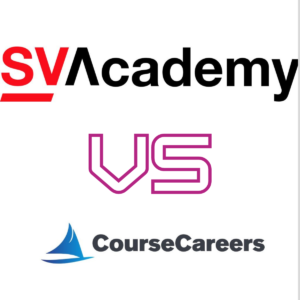The COVID-19 virus affects everyone in their place of work. It affects where they work, how they work, how they learn, and even if they work.
This virus is having significant impacts on people trying to start their careers or look for new opportunities.
How Companies Are Reacting
Many businesses have been forced to close their doors to customers to help prevent the spread of the virus. Other businesses have sent their employees to work from home.
No one is traveling for business or going to conferences. Projects that involve interacting with many people are getting put on hold. Everyone is searching for all kinds of ways to cut costs.
This ultimately leads to companies not requiring as many employees. This is creating mass layoffs and high amounts of unemployment in nearly all industries.
Middle managers at companies are getting asked to move back down to individual contributors or get pay cuts. New job posts and internships are being slashed. Even existing internships are being ended as shown in the case of Disney sending 2,200 interns home.
The worst part is that not only does this show no signs of slowing down, but it’s actually expected to get much worse. A recession is likely imminent. In 2008, it took about two years after the crash before employment reached an all-time low.
What Will Come
Phase 1: Struggle. The next couple of years are going to be tough for everyone. There is no doubt about that. You will have a hard time finding any work to just pay the bills. Finding meaningful work will be even more difficult. The good news is that over time, the economy will start to pick back up and you better be prepared.
Phase 2: Rehire. Companies will be tight with their resources during this time, so the only employees’ companies are going to want to hire are ones that can quickly pick things up from where they left off without heavy investments in training. This is going to make companies strongly prefer to hire employees who were laid off with previous work experience that already know what they’re doing.
Phase 3: Open doors. As hiring increases and this pool of people with previous experience runs out, then companies will begin to look elsewhere for employees. This is when people such as recent graduates, career transitioners, and newly educated people will get a chance to get their feet wet.
What You Can Do to Prepare
What if you’re part of the group that is looking to start their career? You don’t have work experience in the field and you will need training before you’re able to do your job.
What are you supposed to do for the next few years during these phases? Are you supposed to just wait it out? No! You must take action to acquire all the necessary skills and knowledge to make you competitive in the job market during phase 1 while you might have the extra free time.
The people without experience who invest in training and are able to show companies they’re competent enough to do the job with minimal investment from the company are the ones who have a chance at getting hired during phase 2.
You must be willing to learn more and work harder than everyone else. You must also be willing to take whatever you can get to start getting experience during phase 2 even if that means working for free. These are the only types of people without experience that are getting hired during this phase.
As we start to enter phase 3, the people who will get first dibs on these opportunities are the ones that might have worked in a similar job during phase 2 or took some internship opportunity. These are the people who have relevant work experience even though it might not be perfect.
The second group of people who will start to get hired in these companies are the ones who are able to perform the work with little investment from the company even if they don’t have relevant work experience. These will be people who continued to educate themselves, take online courses, or graduate from a highly valued college program.
The last group of people who might have a chance of getting hired are the ones who graduated from college or have an interest in the field but aren’t able to do the job. They might not have all the required skills or knowledge to be effective thus requiring the company to invest in them.
What This Means
The time all of these phases take is very important to keep in mind. The difference between the people working really hard to get their foot and the door during phase 2 and the last group during phase 3 could be many years.
It wouldn’t be crazy to suggest that this difference in time could be over 5 years. This means that the person who does the bare minimum could be working some meaningless job just hoping that something changes in the next 5+ years.
Don’t wait around. Start taking action and learning valuable skillsets. If you aren’t sure which career you want to learn, then you can use The Lean Career Model to help guide you.




